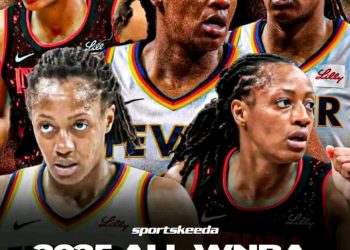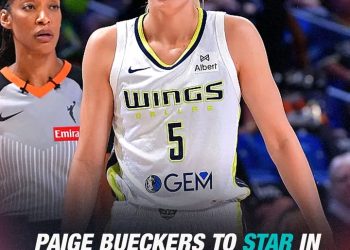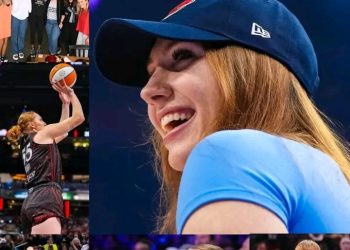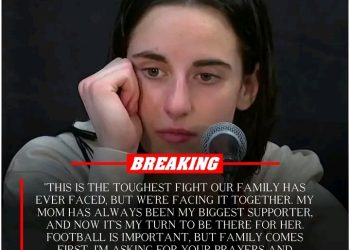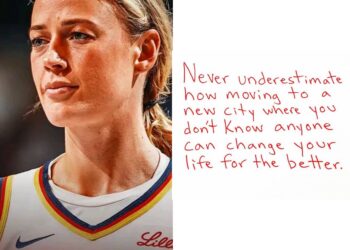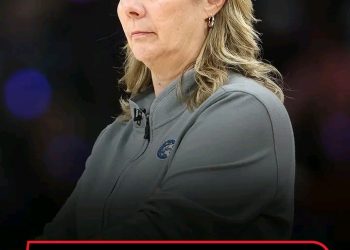Two Qualities the Heat Must Display, and One the Franchise Must Abandon, This Summe
As the Miami Heat head into the summer of 2025 following another up-and-down season, the franchise stands at a critical crossroads. With Jimmy Butler aging, cap space tight, and the Eastern Conference growing more competitive by the year, decisions made over the next few months could shape the trajectory of the team for years to come.
To move forward with clarity and purpose, the Heat must embrace two core qualities—and just as importantly, abandon one that has increasingly held them back.
1. Aggressiveness in Talent Acquisition
Miami’s front office has long prided itself on being opportunistic, seizing the moment when the right player becomes available. That must continue this summer—but with a sharpened edge. Whether it’s through trades, the draft, or savvy free agency moves, the Heat cannot afford to sit on their hands.
This offseason, they must aggressively pursue players who complement Bam Adebayo and, if he’s retained, Jimmy Butler. Even if Butler is traded or extended, Miami needs an infusion of youth and athleticism. Their offense has stagnated at times, particularly when forced into half-court sets. Too often, they rely on grit and half-measure heroics to stay competitive. That’s no longer sustainable.
Whether that means chasing a scoring guard who can relieve pressure off Butler and Tyler Herro, or targeting a versatile wing defender who can guard up and down positions, the Heat must be on the front foot. Waiting around while other franchises get younger, faster, and deeper isn’t an option anymore.
Pat Riley’s track record shows that when he sees a window, he goes all in. This summer is the moment to do it again—because if not now, when?
2. Patience in Player Development
While aggressiveness is key on the acquisition front, the Heat also need to recommit to their identity: development. Miami’s track record of turning undrafted players into rotational regulars is second to none. From Udonis Haslem to Max Strus, Gabe Vincent, and even Duncan Robinson, the Heat have built a development system that’s the envy of the league.
This summer, they’ll need to double down on that philosophy, especially with the likelihood of limited cap flexibility. Young prospects like Nikola Jović, Jaime Jaquez Jr., and Orlando Robinson have shown flashes of potential. But for the Heat to benefit fully from their growth, the franchise must carve out real playing time and invest in their progression—not just treat them as trade chips or emergency depth.
In past seasons, the Heat have occasionally leaned too heavily on veteran presence, sometimes to the detriment of allowing younger talent to flourish. While experience is valuable, a failure to develop internal options can create roster stagnation and financial strain. This summer, Heat brass must be willing to give the next wave of players meaningful opportunities.
That also includes adding fresh coaching voices or analytical staff who can help the young core maximize their skill sets. It’s not just about finding talent; it’s about refining it.
A Quality the Heat Must Abandon: Over-Reliance on Culture as a Crutch
The Miami Heat culture is real. It’s fierce, disciplined, and respected around the league. “Heat Culture” has built championship teams and fostered an underdog identity that regularly exceeds expectations.
But in recent seasons, that culture has sometimes become a crutch—a mythic idea that the franchise can out-tough, out-condition, and out-will their way to success even when outgunned in terms of talent.
That’s a dangerous illusion.
Culture alone isn’t going to get this team past a healthy Boston or Milwaukee squad. It’s not going to outshoot Indiana or outpace young, rising teams like Orlando or Cleveland. And it’s not going to win playoff series when the roster lacks offensive diversity or scoring firepower.
Miami can no longer assume that culture compensates for mismatches or poor roster construction. It must be a foundation, not a shortcut. That means adapting to the modern game, embracing versatility, spacing, and offensive innovation—not just doubling down on physicality and “Heat toughness.”
This summer, the Heat must be honest with themselves: toughness alone won’t win titles. Talent wins titles. Adaptability wins titles. And while culture can be a strength, relying on it too heavily can mask deeper problems.
The Path Forward
The next iteration of the Miami Heat depends on balance. They must channel the front-office aggressiveness that landed them Jimmy Butler in 2019, while nurturing the player development pipeline that keeps them competitive regardless of cap sheet constraints. At the same time, they must evolve from the idea that culture alone can cover for systemic shortcomings.
This summer won’t be easy. Difficult choices may have to be made—perhaps involving Butler’s future, Herro’s ceiling, or the long-term fit of veterans like Kyle Lowry if re-signed. But the blueprint is clear: act decisively, think long-term, and don’t let a storied identity become a stagnant one.
The Eastern Conference isn’t waiting. And if the Heat want to remain more than just a tough out in the playoffs, now is the time to display the qualities that made them great—while shedding the habits that now hold them back.

